-
+255 689 011 111
- info@moinfo.co.tz


WHY SSL
SSL Certificates

If you’re doing business online, you need Secure Sockets Layer protection. SSL locks down your site visitors’ sensitive data against fraud and identity theft. An SSL certificate provides encryption (scrambling of data to prevent tampering during transmission) and validation (verification of the business behind the website), and the end result is customer trust. When visitors to your website see that you have SSL protection, they know your business is
trustworthy and they can purchase with confidence because your site is secure.
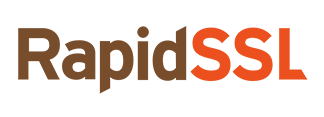
RapidSSL is an ideal choice for securing new, small and medium-sized businesses and web pages with limited traffic. RapidSSL is an affordable, domain-validated certificate and is usually issued within minutes. It provides strong 256-bit encryption and comes with a free "Secured by RapidSSL” site seal.
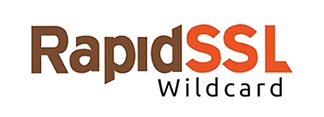
You probably know that each SSL certificate is issued to fully qualified domain name. This usual method becomes tedious when you need to secure number of sub-domains on the same domain name. With RapidSSL Wildcard, you can easily secure an unlimited number of sub-domains of the same domain.
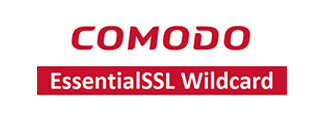
EssentialSSL is an inexpensive domain validation certificate suitable for small and medium-sized businesses. The certificate is usually issued in minutes and involves no paperwork. With an EssentialSSL certificate, you get unlimited reissues, mobile browser support and a FREE Comodo Site Seal.
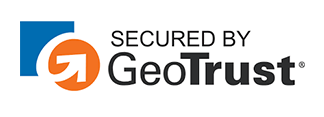
Gain a new level of trust with OV certificate that shows your corporate identity by activating the browser padlock and https. This visible sign increases customers' confidence, because they can see right away that your site is authenticated and trustworthy.
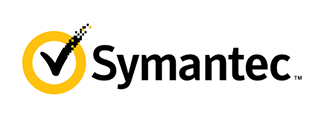
Symantec's unique Seal-in-Search feature places the Symantec seal next to your link in search results, so internet users know your website is verified before they even visit you. And the green address bar lets them know they can complete transactions with confidence.
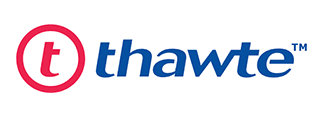
Thawte SSL is a low-cost SSL solution. The certificate is very easy to install. Thawte validates your domain ownership before issuing the certificate. All Thawte SSL123 certificates include a free Thawte Trusted Site Seal and unlimited free reissues.
FAQ's
SSL (Secure Sockets Layer) is one of the standard security protocols used by millions for establishing an encrypted connection between a web browser and a web server while preventing cybercriminals from reading and modifying any transaction done between them, such as the transmission of sensitive information like credit card while doing online shopping. It ensures that all the data passed between the web browser and web server remains private and secured.
TLS (Transport Layer Security) is the successor protocol and an improved version of SSL (Secure Sockets Layer). It works similar to SSL, using encryption to protect data and information transmission.
Moreover, SSL Certificates are one of the digital certificates that prove that the websites’ identity is authenticated and all the information sent to the SSL installed website will stay encrypted with the help of SSL/TLS technology.
Yes. If you have a website, SSL is needed. Earlier, it was okay to have an SSL only for the website, collecting information from the user. But after Google’s update regarding SSL, it is needed no matter what type of website you have, whether you collect the information or not. A simple blog will also display a “Not Secure” if the SSL is not installed.
SSL/TLS Certificate installed on the website helps secure the data transferred between the visitor and a website and vice-versa. Though one thing that has to be noted is that it doesn’t mean the information on the server is secured, as once the sensitive data reaches the server, it’s up to the admin on how to keep it safe, for example, encryption of the database.
Both TLS & SSL are protocols used to securely send data over the internet. Though there’s a minor difference between them, TLS and SSL are still considered different standards. TLS (Transport Layer Security) is an advanced version of SSL (Secure Sockets Layer), which uses stronger encryption algorithms and can work on different ports. Furthermore, TLS versions do not work in conjunction with SSL version 3.0.
- The main reason to use SSL is to encrypt and secure sensitive information sent over the internet, so only the intended recipient can access it while making it unreadable to any third-party in-between. Any information sent over the internet passes through various computers before reaching its destination server, ultimately making your sent information such as credit card details and login credentials vulnerable to attacks if not encrypted with an SSL certificate. Additionally, SSL is important because it provides:
Authentication : Provides sure that the information is sent to the right server and not any fraudster trying to steal data.
Trust : Visual trust indicators such as a green bar or a lock icon are displayed on popular web browsers like Google Chrome or Mozilla Firefox, letting your website visitors know about your genuineness.
PCI Compliance : Pass the audits and satisfy the Payment Card Industry (PCI) standards, which are needed for any website that accepts credit card details.
SSL/TLS Certificate works on RSA Asymmetric Encryption and Symmetric Encryption. Where Asymmetric Encryption helps to establish a secure client-server session and Symmetric Encryption for exchanging information securely over the already established secured session, also called “SSL Handshake.”
Yes. Once the validity period of the SSL Certificate is over, it expires. The validity period is 1 or 2 years for all the SSL certificates, no matter from which Certificate Authority or Reseller you purchase.
After the announcement of Google’s compulsion towards installing an SSL/TLS Certificate, it can affect it because if the SSL certificate is not installed on the website, it will start displaying the “Not Secure” message, or worst, the website will stop loading in any of the popular web-browser.
A Wildcard SSL Certificate secures a single main domain (domain.com) and an unlimited number of subdomains (mail.domain.com, blog.domain.com, login.domain.com, etc.) A wildcard SSL certificate is annotated with an asterisk, as in *.domain.com.

Far far away, behind the word moun tains, far from the countries Vokalia and Consonantia, there live the blind texts. Separated they live in Bookmarksgrove right at the coast of
-
759 Pinewood Avenue
Marquette, Michigan -
info@domain.com
Online Support -
906-624-2565
Mon-Fri 8am-5pm
Switch The Language





